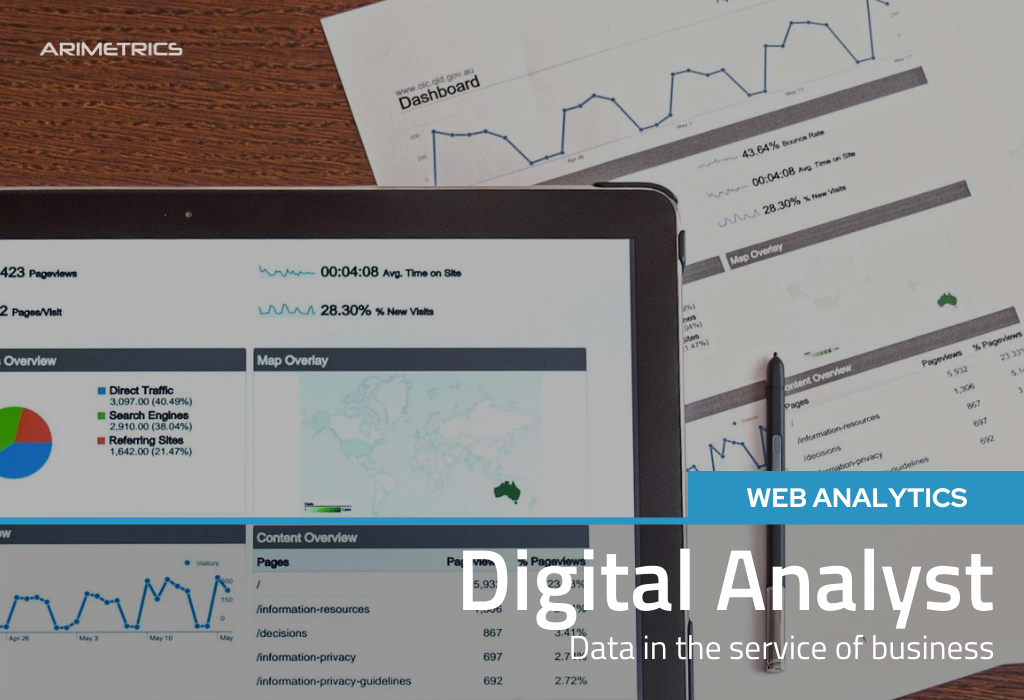As technology advances, the analysis tools that are emerging or improving have allowed us to measure more accurately those data that are being collected. This is a great advantage in business, but you have to be careful, since it is not worth anyone who is able to understand this information and develop strategies based on the data, nor is there yet a tool designed for it. It follows that the human factor is the cornerstone of digital analytics,since, without a good analyst,this whole process is useless. Even a misinterpretation of the data can have very negative effects for the company.
Table of Contents
Characteristics of a good digital analyst
Knowledge of the company
The main function of an analyst is to understand a business in its entirety: to know its objectives in depth and try to measure the actions it carries out to try to achieve those goals. Understanding both a market as well as the operation of the company is essential to start thinking like a digital analyst. What’s more, without these basic skills,their conclusions can be wrong and lead to more disasters than solutions.
Data management
A digital analytics specialist, inaddition, must be able to handle large amounts of data without being frightened,nor dismissing any, since a big change can occur from a small figure. The data can be presented to you in a structured and unstructured way, but the analyst must be able to sort and choose what interests him most for his report, knowing how to manage and adjust them so that they can be easily understood, even for other workers outside of digital analysis.
Advanced knowledge
For the analyses to be accurate and accurate, it is important to understand and understand the fundamentals on which digital marketing is based, but not only this, but you must also understand the technological part that participates. It is important to know where a search comes from or to know the meaning of display, but it is also necessary to know the meaning of cookies and their work or to master HTML and Javascript. If not, the analyst is likely to feel lost while trying to craft his analysis.
New technologies
Unlike many traditional professions, which have always developed in the offline world, the skills of digital analysts revolve around technology,which advances every day at dizzying steps. Therefore, an analyst must always be informed of the changes that occur in all related fields, while continuing to grow professionally, since, in addition, it is likely that new things will be demanded continuously. When this profession emerged, an analyst was limited to studying a very limited amount of data, focusing more on the collection of these that is his interpretation. With the passage of time, this has been changing to the opposite side.
Analysis skills
All this that has been mentioned before, understanding the business and knowledge of digital marketing and its technology, is important when the data has been collected, since it is from here that the work of the analyst begins. The data comes from different places and appears in different ways, so it is often difficult to manage it. In addition, the available tools are constantly evolving,producing changes that test the knowledge and experience of the professional. This must know how to take care of the data and organize them, in order to see that note that produces an improvement within the business. An analyst must look beyond, extract what no one has seen and find that stone in the gear that does not allow the company to advance as it would like.
Data presentation and visualization
Finally, the analyst must know how to present these data in a way that can be understood. These reports are possibly sent to people who master other fields, so they should be made as simple as possible, but without losing important data along the way, so that anyone in the company is able to understand it and carry out the necessary changes.
Skills required to do a digital analysis
In short, there are 5 skills needed to be a good analyst:
- Know how to see insights: The analyst receives a large amount of data continuously, so he must look at all the details carefully, through his skills and experience, to identify the most important data and act accordingly.
- Business knowledge: Not only do you have to understand the information you receive, but you also have to understand what the objectives are and how the company works.
- Knowledge of the profession and the market: The environment of companies is in continuous change, it is important to know these changes and the trends that propitiate them.
- Ease of change: Every day new tools and ways of carrying out analysis emerge, it is important to stay informed and know how to adapt to new technologies.
- Make simple and clear reports: Developing analyses that are understandable by any member of the company is vital to be able to make the necessary changes in the business.
It is important to have your own methodology, which allows you to go step by step and get the necessary insights. But so is perseverance. Many times, the analyst gets stuck, can’t see where the problem is, and the only solution is to continue. Seeing the data over and over again, turning it around, changing the perspective a hundred times… everything that is necessary to be able to find the key that guides the business in its progress.




